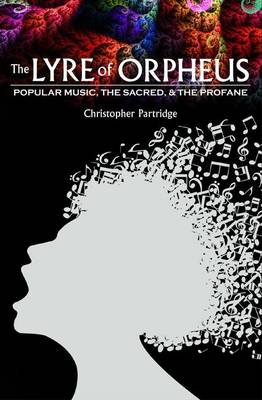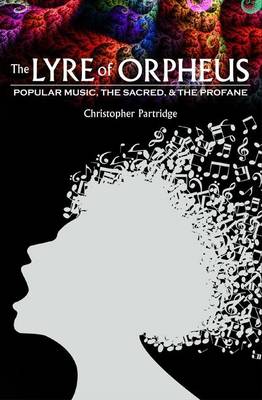
- Afhalen na 1 uur in een winkel met voorraad
- Gratis thuislevering in België vanaf € 30
- Ruim aanbod met 7 miljoen producten
- Afhalen na 1 uur in een winkel met voorraad
- Gratis thuislevering in België vanaf € 30
- Ruim aanbod met 7 miljoen producten
Zoeken
€ 62,95
+ 125 punten
Omschrijving
The myth of Orpheus articulates what social theorists have known since Plato: music matters. It is uniquely able to move us, to guide the imagination, to evoke memories, and to create spaces within which meaning is made. Popular music occupies a place of particular social and cultural significance. Christopher Partridge explores this significance, analyzing its complex relationships with the values and norms, texts and discourses, rituals and symbols, and codes and narratives of modern Western cultures. He shows how popular music's power to move, to agitate, to control listeners, to shape their identities, and to structure their everyday lives is central to constructions of the sacred and the profane. In particular, he argues that popular music can be important 'edgework, ' challenging dominant constructions of the sacred in modern societies. Drawing on a wide range of musicians and musical genres, as well as a number of theoretical approaches from critical musicology, cultural theory, sociology, theology, and the study of religion, The Lyre of Orpheus reveals the significance and the progressive potential of popular music.
Specificaties
Betrokkenen
- Auteur(s):
- Uitgeverij:
Inhoud
- Aantal bladzijden:
- 368
- Taal:
- Engels
Eigenschappen
- Productcode (EAN):
- 9780199751402
- Verschijningsdatum:
- 18/11/2013
- Uitvoering:
- Paperback
- Formaat:
- Trade paperback (VS)
- Afmetingen:
- 155 mm x 231 mm
- Gewicht:
- 476 g

Alleen bij Standaard Boekhandel
+ 125 punten op je klantenkaart van Standaard Boekhandel
Beoordelingen
We publiceren alleen reviews die voldoen aan de voorwaarden voor reviews. Bekijk onze voorwaarden voor reviews.











